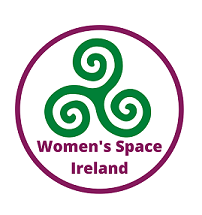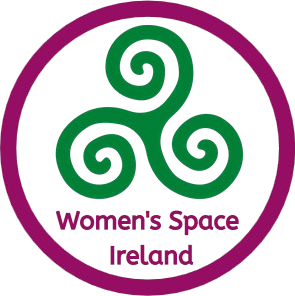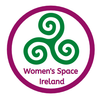What are the Yogyakarta Principles and what do they seek to achieve?
A set of principles, which are not binding on the State and which the Irish public has never had a chance to discuss or vote on, are being cited in Irish government reports on gender with far reaching consequences for women and children.
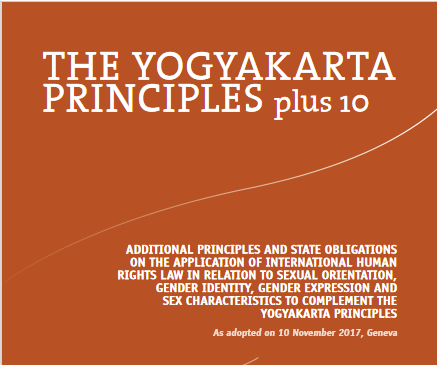
The Yogyakarta Principles are cited in Government committee reports on gender, such as the Gender Recognition Act Review Group report of 2018 and the previous Gender Recognition Advisory Group report of 2011. The Yogyakarta Principles explain that
"YP+10 should be read alongside the original 29 Yogyakarta Principles. Together, these documents provide an authoritative, expert exposition of international human rights law as it currently applies to the grounds of sexual orientation, gender identity, gender expression and sex characteristics."
and
"States must comply with these principles both as a legal obligation and as an aspect of their commitment to universal human rights."
Irish Government response
Asked whether the Yogyakarta Principles (and the YP +10) are binding on the Irish Government and if not, what standing they have in international law and what relevance they have to domestic legislation, the Department of Foreign Affairs said:
"The Yogyakarta Principles are a set of principles elaborated by experts; they are not an international treaty or otherwise binding on States. They were not intended to be formally endorsed by States. Ireland actively adheres to core international and European human rights treaties. The Irish Treaty Series, which contains information on treaties and a database of treaties to which Ireland is a party, is available here: https://www.dfa.ie/our-role-policies/international-priorities/international-law/find-a-treaty/" May 2020
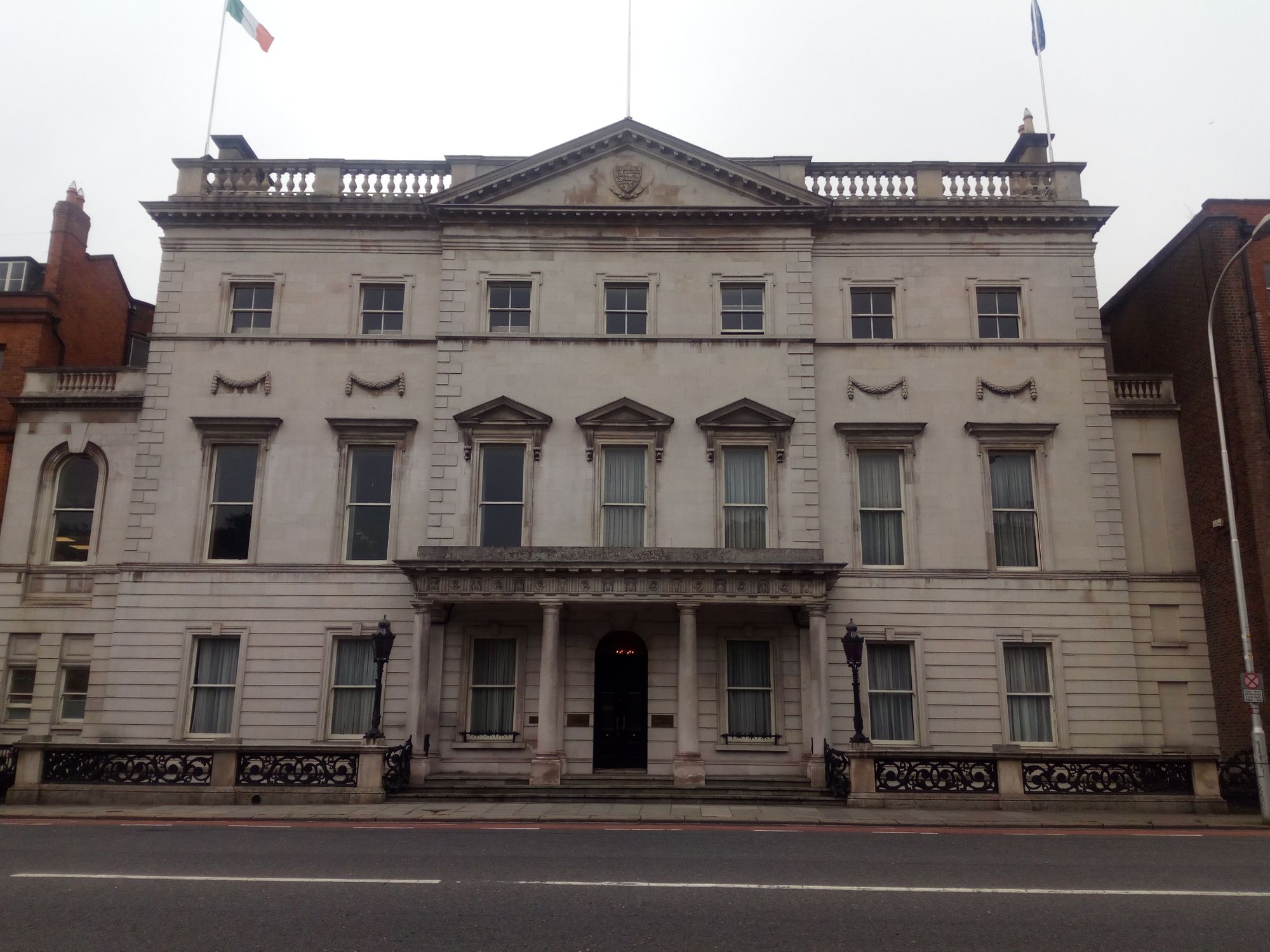
What are the Yogyakarta Principles?
The Yogyakarta Principles are described as a broad range of international human rights standards and their application to SOGI (sexual orientation and gender identity) issues. These were said to have been drawn up by a "distinguished group of international human rights experts" who met in Yogyakarta, Indonesia in 2006. Rapporteur was Michael O’Flaherty, now* the Director of the EU Agency for Fundamental Rights but previously, among numerous posts, Established Professor of Human Rights Law and Director of the Irish Centre for Human Rights at the National University of Ireland, Galway. One of the other signatories was former President of Ireland Mary Robinson. (*Update: since January 2024 O'Flaherty has been the Council of Europe's Commissioner for Human Rights.)
"The result was the Yogyakarta Principles: a universal guide to human rights which affirm binding international legal standards with which all States must comply. They promise a different future where all people born free and equal in dignity and rights can fulfil that precious birthright."
In 2017, a "panel of experts" published the Yogyakarta Principles plus 10 (YP+10) expanding on the original document reflecting developments in international human rights law and practice since the 2006 Principles. The new document contains "nine Additional Principles and 111 Additional State Obligations". The reason for these extra principles it's said
"...emerged from the intersection of the developments in international human rights law with the emerging understanding of violations suffered by persons on grounds of sexual orientation and gender identity and the recognition of the distinct and intersectional grounds of gender expression and sex characteristics."
Lack of input from women to these deliberations
In the 2011 Gender Recognition Advisory Group which reported to then Minister Joan Burton in 2011 it's stated that
"The ‘Yogyakarta Principles on the Application of Human Rights Law in Relation to Sexual Orientation and Gender Identity’ (2007), while not binding, affirm international legal standards with which all States are urged to comply."
No women's organization appears to have made a submission to this advisory group.
Seven years later in the Gender Recognition Act Review Group report of June 2018 it's stated that
"The Principles are not a binding international treaty, but rather a universal guide to human rights that affirm binding international legal standards with which all States must comply."
Once again there was no submission made by the National Women's Council of Ireland (NWCI) to this review group. In fact a search of the report for the word "women" produces only three finds, that of "fears of ciswomen", "fears of violence against women" and "Lesbian:a woman who is mainly attracted to other women." (A lesbian is a woman who is only attracted to others of her sex i.e. women.)
The Yogyakarta Principles also make recommendations
In the later Gender Recognition Act Review Group report of June 2018 it's revealed that
"The Yogyakarta Principles make recommendations about the legal treatment of sexual orientation and gender identity based on twenty-nine rights that currently exist in international law."
It's clear from a perusal of these that the Yogyakarta Principles go far further than simply providing an "expert exposition of international human rights law as it currently applies".
In YP+10 in particular Principle 31: the Right to Legal Recognition says States shall
"Ensure that official identity documents only include personal information that is relevant, reasonable and necessary as required by the law for a legitimate purpose, and thereby end the registration of the sex and gender of the person in identity documents such as birth certificates, identification cards, passports and driver licences, and as part of their legal personality."
While "sex or gender continues to be registered" Principle 31 also says States shall
"Ensure that a person’s criminal record, immigration status or other status is not used to prevent a change of name, legal sex or gender" and
"Make available a multiplicity of gender marker options"
but that also States shall
"Issue birth certificates for children upon birth that reflect the self-defined gender identity of the parents"
Right to found a family
The original Yogyakarta Principles of 2007 include the right to found a family, saying (Principle 24) States shall
"Take all necessary legislative, administrative and other measures to ensure the right to found a family, including through access to adoption or assisted procreation (including donor insemination), without discrimination on the basis of sexual orientation or gender identity"
Sport
Other requirements in YP+10 are e.g. in regard to sport that States shall
"Ensure that all individuals can participate in sport in line with the gender with which they identify, subject only to reasonable, proportionate and non-arbitrary requirements"
Prison
When it comes to imprisonment States shall [give]
"... respect to such issues as placement, body or other searches, items to express gender, access to and continuation of gender affirming treatment and medical care, and 'protective' solitary confinement;"
"... and ensure that persons are able to participate in decisions regarding the facilities in which they are placed."
Education
When it comes to education States shall
"Ensure inclusion of comprehensive, affirmative and accurate material on sexual, biological, physical and psychological diversity, and the human rights of people of diverse sexual orientations, gender identities, gender expressions and sex characteristics, in curricula, taking into consideration the evolving capacity of the child."
Health
Regarding health, States shall
"Ensure that gender affirming healthcare is provided by the public health system or, if not so provided, that the costs are covered or reimbursable under private and public health insurance schemes."
Foreign funding to secure such aims
States shall
"Ensure that associations which seek to promote human rights related to sexual orientation, gender identity, gender expression or sex characteristics can seek, receive and use funding and other resources from individuals, associations, foundations or other civil society organisations, governments, aid agencies, the private sector, the United Nations and other entities, domestic or foreign;"
"If sex cannot be mentioned, then woman as a category is disappeared and feminism and the idea of women’s rights cannot exist."
Two years ago Dr Sheila Jeffreys, the feminist academic and one of the authors of the Declaration on Women's Sex-Based Rights (March 2019), said in a talk entitled "Enforcing Men's Sexual Rights in International Human Rights Law"
"The YPs have been influential in creating a new language, and thus a new way of thinking about, human rights. Women’s human rights are based upon recognition of the category of ‘sex’. This is the sine qua non of the so-called women’s convention CEDAW."
"The YPs substitute gender, the male fetishistic understanding of what women are, for the term sex and thereby eliminate any protections for women as an oppressed class of persons based upon biological sex. When they were updated in 2017 with something called the Plus 10, the language became even more peculiar and exclusionary towards women and women’s rights. These new principles show that the demands of crossdressing men had became more extreme in the intervening years. The Plus 10 includes, for instance, the demand that sex, the biological basis for women’s oppression, be eliminated for official documents. They call for an end to ‘the registration of the sex and gender of the person in identity documents such as birth certificates, identification cards, passports and driver licences, and as part of their legal personality’ (31) (Yogyakarta Principles, 2017). This eliminates the sex class of women and the possibility of recording any information relating to discrimination against women and violence against us. If sex cannot be mentioned, then woman as a category is disappeared and feminism and the idea of women’s rights cannot exist."
The YP+10 introduced a new term which doesn't appear in the original Yogyakarta Principles
The YP+10 says Jeffreys also introduced a new term "sex characteristics" which she points out, doesn't appear in the original 2007 Principles. This has been added to the other categories that the YPs seek to protect, notably ‘sexual orientation, gender identity and expression and sex characteristics’. These are defined as: Sex characteristics (SC) – Include primary sex characteristics (eg, inner and outer genitalia and/or the chromosomal and hormonal structure) and secondary sex characteristics (eg, muscle mass, hair distribution and stature).
"The reason for this inclusion is not explained but it is not anything to do with the rights of lesbian and gays so must serve the interests of male crossdressers. It would, for instance, protect men who claim to be women or lesbians despite their bodies remaining physically unchanged. Thus, men’s penises can become, as they are in transgender porn, ‘lady sticks’. The inclusion of this term prevents women from making the inconvenient complaint that the female impersonators in their toilets or changing rooms have penises. The old fashioned term ‘sex’ was the basis of women’s rights, the term ‘sexual characteristics’ is necessary to protect crossdressing men in their predilection."
Lesbians now report having men who describe themselves as "lesbians" seeking to be part of lesbian social outlets and expecting to be considered as sexual partners, with attempts being made to breach the "cotton ceiling".
In a masters thesis Tina Elaine Minkowitz, Female Autonomy vs Gender Identity A critical analysis of gender identity in CEDAW jurisprudence and the Yogyakarta Principles, finds that the Committee which is charged with the monitoring of CEDAW "has accepted that transgender women are a disadvantaged group of women".
The term "transgender women" as used by the Committee "appears to refer to male transgender persons who identify as women, who may have undergone body modification treatments to appear more female or alternatively may assert their gender identify without undergoing body modification."
The obligation of non-discrimination based on gender identity in the context of health care also has a detrimental impact on the health care needs and rights of women and girls. Gender identity advocates promote the inclusion of male transgender persons in women’s health care, both as clients and as providers. This undermines the feminist women’s movement for empowered health care including body knowledge, sexual knowledge, self-respect and celebration, and quality health services including sexual and reproductive health provided by women for women, and centering women’s bodies and health needs in a context where men’s bodies and needs are still seen as a human default and those of women as an afterthought."
Two years ago Gay Community News reported that at the National Womens Council of Ireland (NWCI) AGM a motion on the inclusion of transgender women in the Irish Women’s Council was passed unanimously. The motion called on the NWCI to support the trans community particularly in terms of healthcare and added
“We call on the organisation to lead the way and model the inclusion of transgender women in the feminist movement in Ireland providing a platform for the voices and experiences of trans women and girls, particularly in relation to accessing healthcare."
“We call on the NWCI to advocate for a healthcare system that better respond to the needs of Trans women.”
Minkowitz points out that
"The CEDAW Committee’s position that male transgender persons are women, that they are disadvantaged compared with women, and that they have a right to obtain legal documents classifying them as women, conflicts with the plain meaning of women and related terms used in CEDAW and with key components of the treaty’s object and purpose. To the extent that it disallows questioning of the status of male transgender persons as women generally or of any individual male person’s claim to be a woman, this position diverges from general international law on membership in disadvantaged groups, which allows for justification to be shown to reject a person’s self-identification." (emphasis added by womensspaceireland.ie)
The Yogyakarta Principles have met with opposition from many countries to their being adopted by the UN
Professor Stephen Whittle OBE is a "transman" and was one of those who signed the original Yogyakarta Principles. Whittle was also centrally involved in lobbying for the British Gender Recognition Act 2004 and is a past president of WPATH and currently a patron of the Proud Trust. Whittle's academic profile states that "he" has also advised the Irish Government and was asked what "he" thought of the criticism that while the Principles interpret binding international legal standards, "the document itself is not legally binding and still only very few States comply." Whittle said
"Of course, they are correct. The YPP would never be binding unless adopted by an organisation like the UN. It was always going to be the case that the UN, the Council of Europe etc. would create their own documents that elaborate the issues within their own organisational structures. In terms of states, nation states do not do a lot of things. For example, in Europe we have so many directives that states do not abide by or states deliberately misinterpret or states narrowly interpret. But when local activists organize themselves, start taking cases to court, the fact that these issues and the recommendation have been made, mean that people will ultimately win their cases against their state.
Look at Ireland. To me as an activist legal matters can always be improved upon, but the fact that LGBT rights have got so far, in a state that was previously controlled by the values of the Roman Catholic church, is astonishing. You have to look at those issues in their wider frameworks, obtaining change is a progressive drip-drip-drip. It is going to be case by case, legislative document by legislative document. Perhaps that's the right way to do it because otherwise there would be so much resistance. Instead, as seen in Ireland in the ‘same-sex marriage’ referendum, activists found there was a huge fertile background support. That only comes because of the history that has been built behind it."
The Declaration on Women's Sex Based Rights was created by the founders of the Womens Human Rights Campaign to lobby countries to maintain language protecting women and girls on the basis of sex rather than "gender" or "gender identity".
"States should understand that the inclusion of men who claim to have a female ‘gender identity’ into the category of women in law, policies and practice constitutes discrimination against women by impairing the recognition of women’s sex-based human rights."
The Declaration points out, for instance, that the concept of ‘gender identity’ is used to challenge individuals’ rights to define their sexual orientation on the basis of sex rather than ‘gender identity’, enabling men who claim a female ‘gender identity’ to seek to be included in the category of lesbian, which is a category based upon sex. This undermines the sex-based rights of lesbians, and is a form of discrimination against women.

